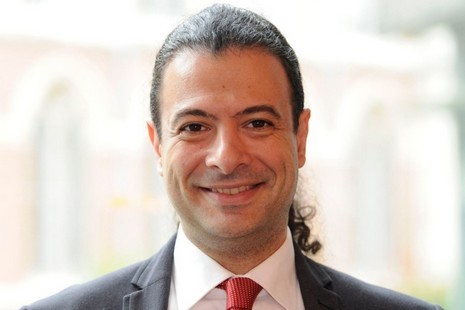ishtartv.com - international.la-croix.com
Anne-Bénédicte
Hoffner, October 2, 2017
French-Lebanese
theologian and philosopher Antoine Fleyfel emphasizes the importance of the
Oriental Christian community for the diversity of the Arab world and warns
against the temptation to turn inwards.
La
Croix: What have Christians contributed to the Middle East including during the
period since it became Arab?
Antoine
Fleyfel: Answering this question involves going back into the history of the
region, which was once Christian. In fact, long before it became Muslim,
Christianity was founded and spread from the region.
The
achievements of the Abbasid Empire in the fields of science, including medicine
and astronomy, as well as the arts, are sometimes emphasized for ideological
reasons. On the other hand, the contributions of Syriac Christians, Copts,
Assyrians or Melkites, who also lived there and whom the caliphs were smart
enough to rely on, are underplayed.
The
famous Beit Al Hikma or House of Wisdom in tenth and eleventh century Baghdad
is an example of this.
More
recently, Christians were among the leaders of the political and cultural Nahda
or “renaissance” movement that emerged in the Arab world during the 19th
century.
They
contributed their reflections on human rights, citizenship, and laicity. During
the 20th century, they also struggled alongside Muslims in Egypt, Lebanon, and
Syria in the battle against the Turk occupiers to promote an “Arab identity”
that they created as well as for the independence of their countries.
Nor
can one overlook the contribution of Christians in the foundation of the
Kingdom of Jordan and the defense of Palestine.
How
can this contribution be measured?
AF:
It is becoming increasingly clear that the phases of greatness of the long
history of the Middle East were periods of openness to diversity while, on the
other hand, withdrawal and turning inwards led to civilizational
impoverishment.
What
is the legacy of the Mamluks, the dynasty that reigned in Egypt and Syria
during the 13th and 14th centuries and who greatly persecuted Christians and
other minorities? Very little.
The
Middle East would lose a great deal if the hemorrhage of Christians continues.
An Arab world reduced to its Muslim component would be deprived of the
cultural, social, political, economic richness that it derives from its
diversity.
Christians
leaving would also accentuate the polarization between the various currents of
Islam...
Is
the Arab world conscious of what it lost with the departure of the Jews during
the 20th century?
AF:
Few will dare to admit it. The hatred of Israel cultivated in the Arab world
since 1948 has led them to equate Jews with Israel. To deplore the departure of
the Jews would inevitably be understood as a kind of support for the state of
Israel.
Clearly,
however, it was a significant loss. Until 1948, for example, one-third of
Baghdad was Jewish!
The
Arab countries, particularly Egypt and Iraq, have not had the intelligence to
make sure they stayed although the Jewish state was also partly responsible
since it encouraged immigration to its own territory.
In
the difficult current context, can Christians still make a positive
contribution to the societies in which they are living?
AF:
Their participation has been downplayed for several decades and even more since
the emergence of jihadist movements such as Al Qaida and ISIS.
As a
result of the situation in the region, namely spreading violence and religious
fundamentalism, we also observe a trend for Christians to withdraw at the
moral, religious and cultural levels as well as in their relations with others.
For
example, some Christians tend to turn inwards in a somewhat bigoted and
superstitious expression of their faith.
The
crushing majority of theses in theology today deal with the history of each
Church, the great saints of past centuries. But we cannot stop there!
There
is a huge shortage in the fields of ecumenism, systematic theology, Islamic
theology, and ecclesiology. How can one imagine a future for these churches
without a dialogue with Islam? Indeed, some churches are still governed like
tribes by priests and bishops driving their beautiful cars. Or in the fields of
science and particularly history?
In a
way, like the Muslims, Oriental Christians are still living in an “enchanted”
world in the sense that religious and magic explanations have taken the place
of scientific study. It is difficult to make progress in such conditions.
And
yet, their achievements, particularly in the field of education, are still
highly appreciated?
AF:
Certainly, including by Muslims themselves! Christians are also recognized for
their hospitals, the aid they bring to the most disadvantaged, as well as their
economic contribution.
They
have a strong presence in commerce and the liberal professions in general.
One
ought not to forget their literary and intellectual contribution either, which
is fostered by publishers, journals and media, as well as their more general
contribution to dialogue among the various components of Arab society.
In
Iraq, only Christians are capable of bringing together Arabs and Kurds, or
Sunnis and Shiites.
Professor
Antoine Fleyfel is a theologian and professor at the Catholic
University of Lille and is also responsible for academic relations
with the L’Oeuvre de l’Orient.

Antoine Fleyfel / Photo: Guillaume Leroy
|